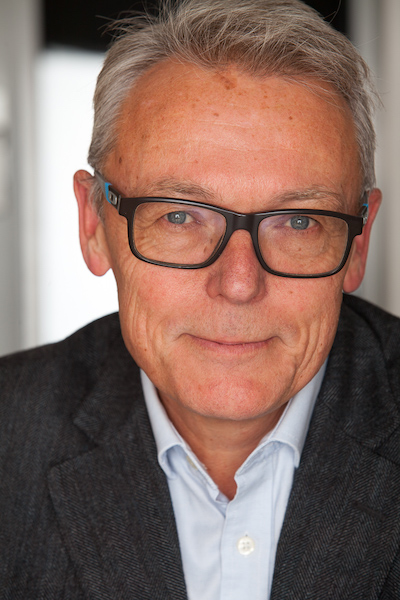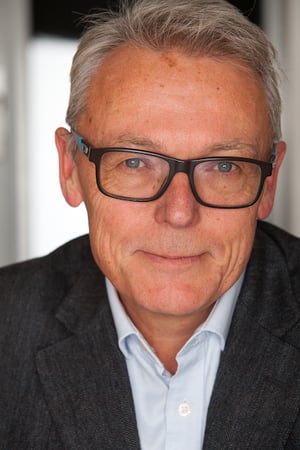Peter Cullen Trust CEO's leadership has helped connect science and policy

After four years at the helm of the Peter Cullen Water and Environment Trust, CEO Tom Mollenkopf knows a thing or two about leadership, one of which is the importance of supporting water professionals to engage in effective conversations to help connect science and policy.
Set to move onto the role of President at the International Water Association, Mollenkopf reflects on what initially drew him to the Peter Cullen Water and Environment Trust and why its ongoing work is important to creating effective links between expertise and communities.
“I joined the Trust four years ago because of its mission, and because of Peter Cullen, his reputation and the work that was being carried on by the Trust under his name. Peter was a freshwater ecologist, a professor, and a great scientist, but he was also a great communicator,” Mollenkopf said.
“One of his aims was to engage with policy. He was trusted by politicians of all colours because he spoke plainly and he conveyed scientific information in a way that people understood.
“When Peter died, the water community felt a huge sense of loss because someone who spoke so eloquently for our rivers, for our natural resources, had been lost. Therefore, for the last 10 years, the Trust has been committed to building bridges between science and policy.”
Mollenkopf said that, at its core, the trust is about good, evidence-based decision-making, and informed and respectful conversations, which are facilitated by the organisation's leadership development programs.
“10 years on, there is an even greater need for listening, for having informed debate rather than letting loose with opinion, unsubstantiated by inquiry,” he said.
“We are well known for our leadership development programs, which are about improving the capacity of people involved in the water sector to be personal leaders, to be leaders within their organisations, but also to lead policy conversations.
“By supporting water industry professionals to have greater capacity to have those conversations, we aim to raise the level of debate.
“We also run a series of forums. We facilitate lunches with water sector leaders, curate an annual Peter Cullen Lecture, and we have an incredibly active fellows network, which is our alumni engaging to continue those conversations. Before COVID hit we had a major water ideas symposium planned, which we're now redesigning for 2021.”
Keeping focus
Mollenkopf said the work of supporting people to participate in informed and constructive engagement and leadership around water issues will always be a necessity, particularly as new and pressing challenges arise in the sector.
“It’s a little bit like marketing. Just because Coke is one of the most recognised brands in the world doesn't mean they ever stop marketing. It’s much the same with leadership; you can't afford to take your foot off the throttle,” he said.
“There's new people coming through and you want to enable them, but even established leaders need a refresh. We can very quickly revert to type unless we're constantly reminded about the tenets of good leadership, especially listening as much as speaking.
“One of the things that's been particularly gratifying during my time at the Trust is that our programs have delivered real value to participants and their sponsoring organisations. An independent review during the year testing program outcomes against our theory of change demonstrated a clear improvement in individual skills and understanding, and organisational outcomes. Our next challenge is to try and validate system level impact.
“While we're very happy with the shape of our leadership programs, we are always working towards raising the level of discourse. We've now got a very strong and growing set of alumni, but how do we reach further into society, politics and communities?”
Achieving further reach into communities is an increasing challenge, Mollenkopf said, one that requires continued work and collaboration.
“Globally, we’re seeing a polarisation and an inability for different groups in society to relate to and to listen to each other. We in Australia have been very fortunate not to have suffered those extremes, but there is an increasing view that ‘my opinion matters’, regardless of whether the time has been taken to become informed,” he said.
“There’s a big opportunity in ensuring that policymakers and elected officials are able to engage and to be better informed on the science, economic and practical issues relevant to policy.
“Furthermore, our scientists and practitioners in the water space are incredibly talented with great technical expertise, but we've got to work on ensuring that they have the skills, the tools and the confidence to have conversations with the community. The key is to be equipped to listen as well as to speak.
“I don’t just mean issues around water scarcity, water quality and environmental degradation, but also what the opportunities are to improve. I think for us, the next big challenge is facilitating the conversation more broadly.”
A new partnership
With this in mind, the Peter Cullen Trust is extending its reach and partnering with the Murray Darling Association to deliver a Basin Community Leaders’ Program.
“The program targets leaders in basin communities; they might be locally elected officials, people in non-government organisations, business or just interested community participants who want to raise their level of understanding about Basin issues,” he said.
“One of the things that we know is that when people have a common language around how to engage, it improves the level of discourse.
“If we can have participants from all different parts of society and different disciplines, all in the one room, all learning about leadership and about how to have those conversations, that will lead to better understanding and, in turn, better outcomes.
“They say that politics is the art of compromise. I think that we all come to the table with views informed by our experience and our history. As we understand those different perspectives, I think we will appreciate that there's more to it than just what we thought we knew.”
And while Mollenkopf’s time with the trust is coming to an end, he said he is confident the organisation will continue to grow under the guidance of newly appointed CEO Darryl Day.
“All CEO’s want to know that, when they leave an organisation, it’s in a better state than when they arrived. But also, one wants to know that an organisation is in good hands when they leave. That's why I'm so thrilled that Darryl Day has been appointed to succeed me as CEO,” he said.
“He's someone with such great integrity, such high emotional intelligence, and such broad networks in the water sector. He will do a great job and I am certain that the trust will continue to grow under his leadership.”


